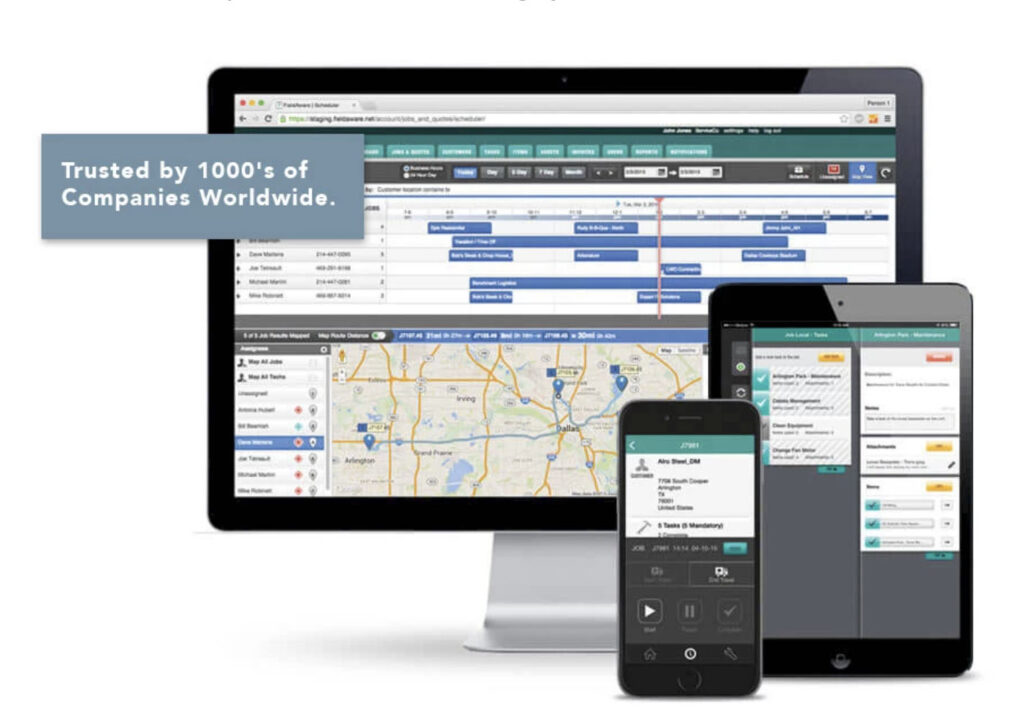The Critical Role of Analytics in 2019
Marc Tatarsky, SVP Marketing of FieldAware outlines the increasing importance of business intelligence in field service management.
Without doubt the use of analytics is having an increasing impact in field service. In 2018 we saw more interest than ever from field service leaders wanting better insight into their business and they understand that analytics holds the key to this.
We are expecting a further shift in the way analytics is applied in field service so what are the main challenges that organisations face that analytics can address today?
The Evolution of Analytics
The early adopters of field service analytics were quick to realise that it was not simply data that mattered, but how the data was turned into information that was key. They focused on how data was aggregated from multiple sources to give a unique and unprecedented visibility into the end-to-end operations.
They took a basic understanding of the ‘what’ and ‘where’ and enabled the next leap of the ‘why’ with advanced analytics capabilities that truly enhanced the value of their data further still. Analytics provided business insight and allowed management to focus on taking action based on decisions made from the real-time information available. Operational issues can be more easily identified and rectified quickly and effectively. Business intelligence helps identify trends and creates context, so productivity can be improved, and efficiencies made, so field service organisations have reaped the benefits.
Learn More, Serve More, Grow More
As field service organisations mature in their use of analytics they demand more from business intelligence. There is a definite shift in the application of analytics from simply turning data into outcomes, to enabling leading companies to take a more strategic approach. Analytically driven organisations can learn more about their operational performance and the needs of their customers empowering them to address the trends that are revealed.
Going forward into 2019 we will see analytical data being used in unique ways to help field service organisations leverage the findings that are uncovered to drive innovation into their products and services. Forward-thinking companies will be able to apply these insights to help customise the service they offer to their customers more easily, deepening the customer relationship and improving levels of satisfaction.
The creation of new, unique, predictive and preventative services will help them to serve more. Ultimately this greater understanding of their customers’ needs and expectations, is what will help companies differentiate themselves from their competition and lead company growth.
This shift to a strategic use of data is becoming more and more prevalent in field service and leaders are making it a priority in their business drivers.
An Integrated Future
As company leaders recognise that field service has the potential for becoming a more strategic driver within the wider business, the need for improved integration within the business becomes even more critical.
Service teams have, in the past, often been considered to be simply an overhead within the business model rather than adding value. However, the ability to leverage information across the organisation in real time and bring additional context to the broader business insights, empowers field service organisations to become value drivers in the business.
Analytics provides the means for field service organisations to realise their potential and companies that recognise this value, see the importance of a closely integrated and connected field service within the wider business.
Field service solutions have long had the capability to integrate into other business systems, such as CRM, ERP and accounting, to extend the power of these solutions and the combined information provided. Business leaders understand that the true integration of these technologies maximises the overall value beyond the sum of the parts. A comprehensive field service management platform integrated with a suite of solutions is where we are seeing the greatest application of analytics.
As field service becomes a greater part of a fully connected business, the empowered field workforce, armed with contextual insights, are enabled to creatively interact and work with other teams and departments. These new interactions further unlock the value for the company in terms of customer service, sales or product development to fuel competitive advantage.
The Analytics Advantage
Analytics will continue to develop and the potential in field service is vast. It is no surprise that research consistently shows that field service leaders see analytical tools as a priority for their technology investments.
Business insights elevate the field service operation, transforming it to a value-driving organisation within the wider company, that delivers real results: Increasing productivity, customer satisfaction and revenue, taking service to the next level of providing competitive advantage – a vital step in any business.
Companies should take full and rapid advantage of the critical role analytics has in field service.
Marc Tatarsky, is SVP Marketing at FieldAware and will be part of a panel at Field Service USA, discussing the latest developments in field service analytics. The event takes place from April 23 to 26 at JW Marriott Palm Desert Resort and Spa, CA and ou can register for the conference here.
For more information on how to take advantage of analytics in your field service, visit FieldAware’s Insights page here.
Further Reading:

See FieldAware in action by requesting your demo now.
FieldAware is a top-rated mobile field service management software that lets you easily schedule and dispatch field workers, assign jobs, invoice customers and more.


